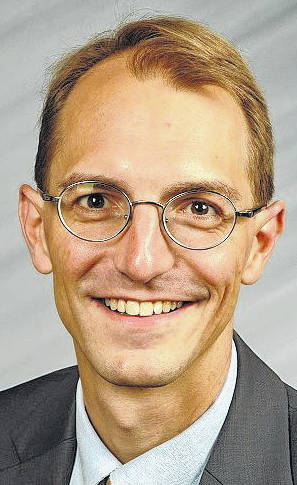
“Correspondence with you is one of the most agreeable events of my life.”
— John Adams, letter to Jefferson
“So good night. I will dream on, always fancying that Mrs. Adams and yourself are by my side marking the progress and the obliquities of ages and countries.”
— Thomas Jefferson, letter to Adams
March 4, 1801, was a relatively warm late winter day in Washington, D.C., but it was the coldest point in the five decade relationship between John Adams and Thomas Jefferson. The election of 1800 had driven a wedge between the two men who had been close friends for more than 20 years, and the events of March 3 and March 4 would only solidify the chill between them. It would be another decade before a thaw reignited their close friendship and permitted it to burn brightly until their deaths — remarkably, on the same day, and more remarkably on the exact date of the nation’s 50th celebration of independence.
Adams and Jefferson lived at a time in which it was common for people to keep copies of correspondence. And while many people destroyed copies of letters before their deaths, they kept meticulous records of their letters that survive to this day. Historian Lester Cappon, a professor at the University of Virginia, and the archivist at Colonial Williamsburg, published the complete text of their letters as a two-volume set in 1959, with an abridged single volume published in 1987, which remains in print.
Though the men eschewed attempts at seeing the letters during their lifetimes, Jefferson wrote to Adams in 1822 that he declined a request to publish them, stating, “These people think they have a right to everything however secret or sacred.” Their letters now serve to document an incredible relationship. They show a period of warmth from 1784-1796, a period of near silence from 1796-1812, and a re-blossoming of their friendship, brokered by mutual friend Dr. Benjamin Rush, from 1812-1826.
The campaign of 1800 was among the dirtiest, ugliest, and meanest of presidential elections in the nation’s history. The only time that a sitting vice president (Jefferson) challenged his president (Adams) for the office, the rematch of the razor-thin 1796 race saw the results flip from four years earlier. During the campaign, one of Adams’ supporters published an editorial claiming that Jefferson promoted incest and adultery. Jefferson’s supporters responded, in print, that Adams was actually a hermaphrodite. The election was remarkable for its meanness.
Adams is among the most maligned and misunderstood figures of the revolutionary era. A man of deep principles, a lifelong and abiding love for his brilliant wife, and a firm opposition to the horrors of slavery, he found that his time in Washington was miserable. The White House was only partially complete, and was cold and drafty. His policies drifted from his Federalist Party, and he found much of cabinet working against him. He longed to return to Massachusetts.
In February of 1801, Adams learned nearly simultaneously of his loss in the previous November’s election, and of the death of his son, Charles, at age 30.
After several years in which there were no letters between the men, Adams wrote to Jefferson on Feb. 20, 1801, simply to tell Jefferson that he did not need to purchase horses or a carriage, as Adams would be leaving the ones belonging to the government. Jefferson wrote to Adams on March 8, days into his presidency, that a letter had come for him, and he was forwarding it. Adams responded on March 14 that the letter was “the greatest grief of my heart and the deepest affliction of my life” — details of Charles’ funeral. Jefferson did not reply. There would not be another letter between the men for 11 years.
On his final night in office, Adams would fill several federal judgeships and other positions. The “Midnight Appointments” as they came to be known, would embitter the relationship more. On the morning of March 4, Adams rose early, left the White House at 4 a.m., and caught the early morning stagecoach to Baltimore. Jefferson, who had been staying at a local boarding house, took a 10 a.m. walk to the Capitol building, where Chief Justice Marshall administered the oath of office. It was the first time in the nation’s history where the outgoing president did not attend his successor’s inauguration, something that has occurred only three times since.
The two men, signatories to the Declaration of Independence, both having served as president and vice president of the nation, once again became incredibly close in their later years. Adams, for his part, wished no ill on any of his successors. He wrote to Abigail, “I pray Heaven to bestow the best of Blessings on this House and all that shall hereafter inhabit it. May none but honest and wise Men ever rule under this roof.”


